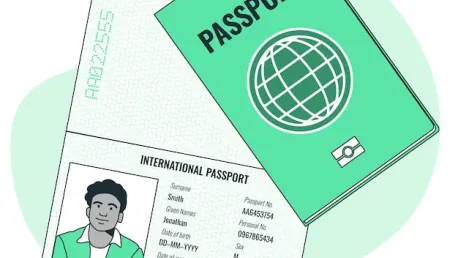The tech industry has long been a beacon of innovation, attracting talent from around the globe to fuel its growth. However, the implementation of stringent immigration policies has raised concerns about the future of this sector. The significant rise in denial rates for high-skilled H-1B visas is causing a ripple effect throughout the industry. The H-1B visa, essential for bringing specialized foreign talent to the United States, has increasingly become a point of contention. As companies face longer processing times and more scrutiny, the impact is palpable, not just among employees but also in the broader market where America must compete globally. The implications of these policies extend far beyond visa holders, potentially altering the competitive landscape of technology worldwide.
The Critical Role of H-1B Visa Holders
The tech industry’s dependence on H-1B visa holders is particularly pronounced in areas like Silicon Valley. The sector attracts a substantial number of international professionals, primarily from countries such as India, China, and Canada. Leading tech giants such as Amazon, Google, Meta, Microsoft, and Apple employ large numbers of H-1B visa holders. This reliance underscores the sector’s dependence on international talent to drive innovation and maintain global competitiveness. With stringent immigration measures, the risk of deterring this talent looms large.
Several companies have resorted to paying for expedited processing to mitigate work disruptions. Although this solution temporarily eases operational headaches, it is not sustainable long-term due to the high costs involved. Legal experts, including Malcolm Goeschl, point out growing anxiety among tech workers, especially those who rely on visas. This uncertainty can stifle creativity and productivity, undermining the industry’s capability to innovate at its current pace. Therefore, the stakes are high, as the tech sector’s performance heavily relies on a stable and predictable flow of international talent.
Impact on Innovation and Competitiveness
The restrictive immigration policies are not just internal issues; they carry significant implications for America’s standing in the global tech arena. Competitors, especially from China, are rapidly advancing in areas like artificial intelligence, robotics, and other emerging technologies. As American tech companies grapple with visa uncertainties, foreign firms can seize the opportunity to attract the best minds, potentially leading to a brain drain from the United States. This shift can unfavorably position the U.S. in the global battle for technological supremacy.
The broader impact on innovation is also a pressing concern. Cutting-edge projects often require a diverse range of skills and perspectives, typically sourced from a global talent pool. Restrictive policies can therefore hamper the collaborative spirit that has been the hallmark of American ingenuity. For tech companies, the ambiguity surrounding visa rules introduces an element of unpredictability that complicates strategic planning and long-term projects. As companies become hesitant to invest in uncertain futures, the overall progress in critical technologies could slow down, affecting not just the tech sector but the broader economy reliant on technological advancements.
Legal and Strategic Adaptations
Amid these challenges, tech companies are not standing idle. Many firms are adapting by consulting with legal experts to navigate the complexities introduced by the new policies. Law firms have been advising companies on maintaining clear communication and updated documentation for their visa-holding employees. Regular company-wide meetings and one-on-one consultations are now common practices aimed at providing reassurance and addressing individual concerns.
These steps, while helpful, underline a more significant issue. They illustrate the lengths to which companies must go to manage the fallout of unpredictable policy shifts. There is also a concerted effort among companies to lobby for clearer, more predictable immigration policies that can support the tech industry’s growth. Yet, without decisive and transparent policy decisions, these efforts may only serve as temporary measures rather than long-term solutions.
Future Considerations for Stability
The tech industry has been a symbol of innovation, drawing talent from all corners of the earth to drive its ever-evolving growth. However, recent stringent immigration policies have sparked concerns about the sector’s future. The sharp increase in denial rates for H-1B visas, crucial for bringing specialized foreign professionals to the U.S., is creating widespread effects throughout the industry. The H-1B visa program, instrumental in supplementing the American workforce with highly skilled talent, has become contentious. Companies are encountering longer processing times and increased scrutiny, which is significantly impacting not only the employees but also the broader market. This market impact is vital as America strives to maintain its competitive edge on the global stage. The reverberations of these immigration policies could profoundly reshape the competitive dynamics of the global technology landscape. These changes have the potential to alter the industry’s talent pool and affect its capacity to innovate and lead globally.









